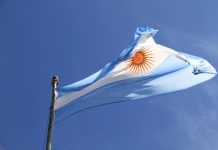 Betsson has revealed that it was able to achieve record revenue in the second quarter of 2020 despite “challenging” operating conditions caused by the novel coronavirus (Covid-19) pandemic.
Betsson has revealed that it was able to achieve record revenue in the second quarter of 2020 despite “challenging” operating conditions caused by the novel coronavirus (Covid-19) pandemic.Total revenue for the three months through to 30 June amounted to SEK1.53bn (£134.8m/€149.5m/$171.1m), an increase of 20% on SEK1.28bn posted in the same period last year.
Betsson put this down to year-on-year growth within its casino business, where revenue increased 40% to SEK1.29bn, representing 84% of the quarterly total.
In contrast, sportsbook revenue fell 34% to SEK226.5m, which Betsson said was due to a limited betting market, after almost all major sporting events were cancelled or postponed as a result of the pandemic. Revenue from other products came in at SEK20.1m, up 6% year-on-year.
Looking at geographical performance, Betsson said it noted significant growth in Western, Central and Eastern Europe, Central Asia, as well as in its rest of world operations.
The majority of revenue was generated in Western Europe, which accouted for 36% of group revenue for the quarter, at SEK550.2m.
The Nordics followed on SEK485.0m (32%), then Central and Eastern Europe and Central Asia with SEK363.6m (24%), while revenue from the rest of the world represented 8% of overall revenue in Q2.
In terms of spending for the quarter, operating expenses totalled SEK740.8m, up 12% from SEK662.0m in the same period last year.
Marketing expenses were the main outgoing in Q2, rising 11% to SEK256.8m. Personnel costs also climbed 11% to SEK219.9m, due to employing new staff for technology development and the addition of 60 new employees through the acquisition of Gaming Innovation Group’s B2C assets during the period.
Other external expenses, including sportsbook related costs, consultants and software licences, rose 21% to SEK223.0m, while capitalised development costs were up 27% to SEK62.4m, but amortisation of capitalised development costs were down slightly to SEK52.3m. Total amortisation and depreciation for the quarter stood at SEK86.5m
Operating expenses also included a non-recurring item of SEK20m for a fine issued by the Swedish Gambling Authority, while Betsson also accounted for an SEK17m exchange loss in the quarter.
Despite spending more in Q2, revenue growth during the period meant Betsson was able to post an improved operating profit, which increased by 11% from SEK196.9m to SEK217.7m.
After financial items of SEK11.0m, this left Betsson with SEK206.7m in profit before tax, up 14% from SEK171.6m last year.
Tax payments for the period amounted to SEK13.8m, which meant that Betsson ended the quarter with SEK192.9m in net profit, an increase of 12.4% on Q2 of 2019.
“The second quarter was strong and followed the positive trend from the start of the year despite market challenges during this extraordinary period,” Betsson’s president and chief executive Pontus Lindwall (pictured) said. “The pandemic had immediate effect on the company from March onwards. We responded quickly and decisively to make changes in the offer, and I am particularly pleased to see the strong performance in casino.
“From March to date, we have seen many changes in habits of how people work, interact, shop and enjoy entertainment, many enabled by advancements in technology and the use of digital devices,” he explained. “We believe the ongoing transition from offline to online has been further accelerated as a consequence of the global lockdowns. This will benefit the strategic direction of our business both short and long term.”
In terms of Betsson’s performance in the first half of 2020, revenue was up 13% year-on-year to SEK2.95bn. Gross profit increased 8% to SEK1.90bn, while its operating profit was also up 6% from SEK452.1m to SEK478.3m.
Net profit for the six months to 30 June amounted to SEK422.5m, an increase of 5% on SEK400.9m recorded in the same period last year.
Looking to Q3, Betsson said average daily revenue to 16 July was 35% higher than the average daily revenue of the full third quarter 2019.
However, Betsson noted some uncertainties over the high level of casino revenue for Q2 sustaining into the third quarter. Furthermore, the start of Q3 had a disproportionately heightened volume of sporting events due to the previously cancelled events from the proceeding months.
Also in Q3, Betsson acquired 70% of Colombian operator Colbet, in a deal it said gives it access to a licence in the only regulated online gambling market in South America.
Betsson will migrate the Colbet business to its own technology and provide Colombian players with access to an online sportsbook and casino, along with a range of payment solutions.
“The immediate outlook is naturally uncertain, however Betsson is in good shape and we are in it for the long term,” Lindwall said. “Our proprietary technology is a strategic advantage, our diversification in markets, verticals and brands makes us resilient to market fluctuations and our financials are rock solid.
“This makes me optimistic about the prospects for Betsson.”












